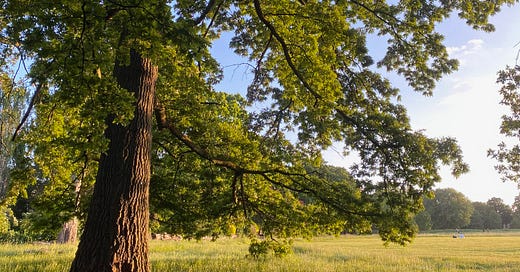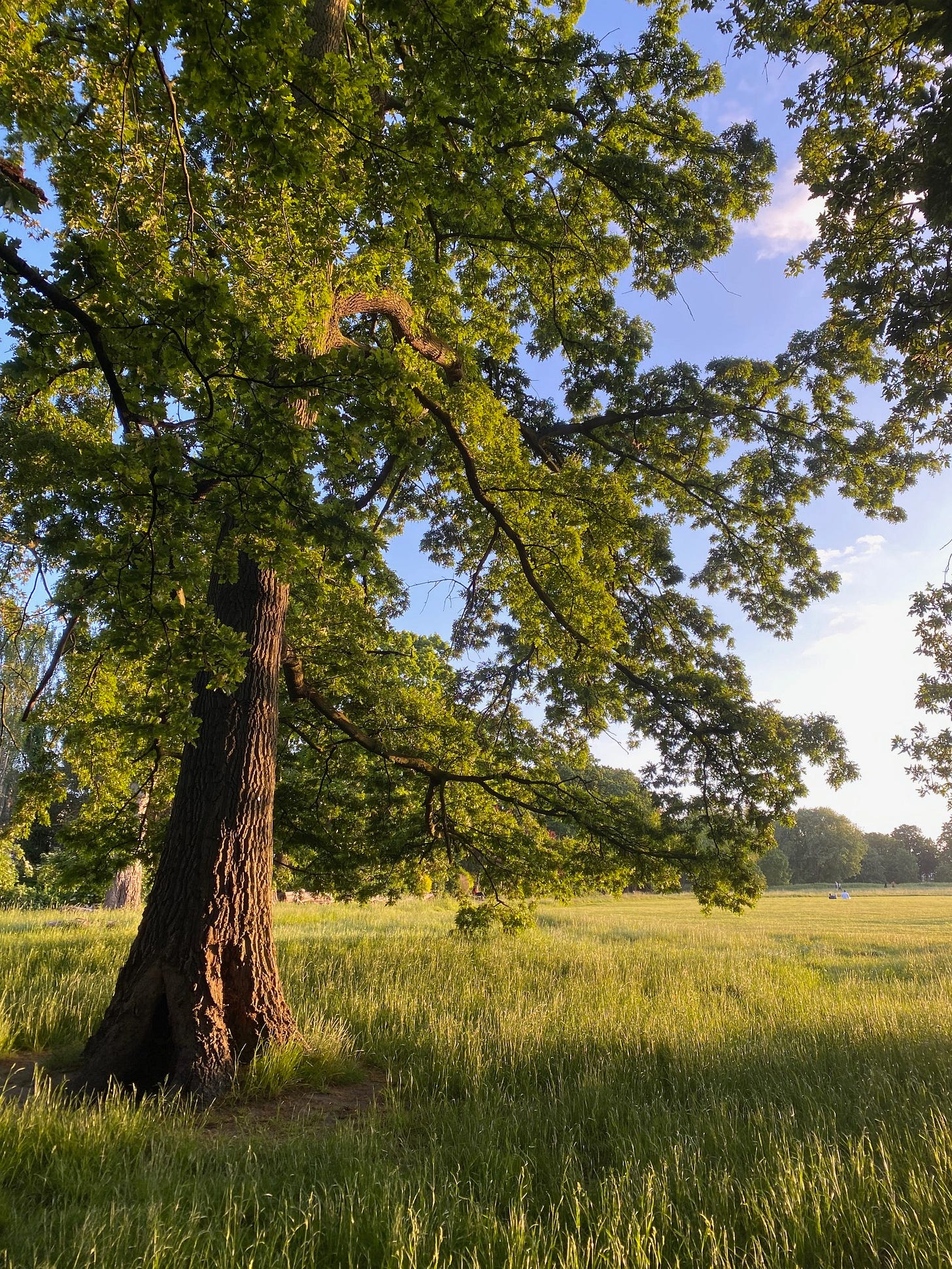I started this Substack because I’ve been thinking a lot about my resistance to writing and creating, and the tension between that and the way my body seems to cry out to be put into words.
In August, my Nain died. Later that evening, after the tears, I opened the Substack app, and I read some other people’s words.
People living. People thinking. People creating. People worrying. In the face of mortality, in our dying bodies, here we are reading and writing. How cliché, how fragile. How heartwarming. We all have a story to tell, and perhaps some people don’t like that. But there are so many stories lost to us that deserved to be told.
Grief is something of a portal, a doorway through time.
We tend to be familiar with the family photographs, the weddings and births, the events that bookend the stories we inherit, but what about the smaller memories, the mundane moments of life?
I’m reading my Nain’s emails. Her words are what remains, even as her body is now dust. ‘Yes, time is passing, really galloping along,’ she writes to a cousin. It had been a lovely summer, hardly any wind or rain and although the spring onions in the garden sprouted quickly, ‘the spinach was so coarse I hardly ate any’.
Two years later, her writing days starting to fade: ‘I have just written a long, long letter and these two words are all that is left of it, so I will send this as it is.’ I wonder what was unwritten by a mis-jab at her keyboard. In her drafts, unsent, to her son: ‘I’m very proud of you’.
My Nain started a newsletter, once, as part of a New Year’s Resolution. Ten years ago, in her late eighties, she started writing emails to her seven grandchildren. From a desk in the small, windswept bungalow by the sea, she would send her writing out into the world — her memories — not knowing whether we wanted to read them or whether we cared or whether we would respond.
She began writing to us back in 2014: ‘I hope you will find it interesting, if not now, then later on.’ She wanted to document her earliest memories — the familiar shape and feel of her first home where she was born. What she got for Christmas in 1930: ‘a shiny new penny, an orange, a couple of nuts and a bag of chocolate coins’. Her younger brother being born. Accidents — cutting her finger on her father’s razor, which would still hurt over eight decades later. Asking her mother to be allowed to wash up the dishes. Her first memory: of being misunderstood.
She grouped her memories by place, describing everything she could remember about each home she lived in, and all the memories that came to mind. As if she could travel back through time and space, from one room to the next, until she was born.
Later they moved to a house with a garden on the edge of Sheffield, and started collecting caterpillars and bees, finding frogspawn, and having to put it back before it turned into tadpoles. A weasel getting into the pet rabbits, whose fur was so soft, and the milkman, Mr Sellars, having to put them out of their misery. ‘The boys’, (her three brothers) ‘caught sticklebacks and tiddlers in jam jars carried by a string handle’.
On my penultimate visit to her, Friday, she said to me: ‘the boys are here now’, and then she fell asleep. I wonder if she meant her brothers. I stroked her hair, watching the last of the summer flowers blush in the breezy sea winds through her hospital room window.
By her childhood house was a track, down through brambles where she swung through trees pretending to be Tarzan, to a sports ground with a wooden pavilion. ‘I can still smell it — the smell of the wood, hot and dusty, and when I go into my new shed now on a warm day it reminds me of those long, hot, happy, summer days.’ These are her words, which I read out at her funeral, trying not to cry.
Nain intended to keep writing — she wanted to write down everything she could remember, up to and including the Second World War, which ended when she was eighteen. But we only have these fragments, and I will treasure her words.
I wonder what I’ll remember of my life at the end of it. It isn’t the biggest moments she felt the need to capture, but the smaller moments we often overlook. The vividness of a Christmas morning, a summer spent in the garden, bare feet over the cut stubble of a field. Her brothers bringing home a pet dog, Snubs. Not the war, not being bombed out of the family home and forced to live apart for several years, but that time she wandered off from watching the cricket and sat in a wooden pavilion, breathing in the smell of the wood. How she remembered that warm, dusty smell, eighty years later.
It’s September, now, and the ripest conkers have fallen. I point them out to my daughter. She picks them up and hands them to me — the biggest, the glossiest — and I hold them gently for her in my pocket. I imagine that this is a memory I’ll want to write about when I’m 87. That I’ll pick up another conker, a small, polished mahogany seed, put it in my pocket and be transported back here, to an ordinary autumn day when my daughter was one, when we lived by a horse chestnut tree. And I think: our words are gifts we give ourselves.





Thank you for sharing this. I hope we hear more. Beautiful
Sorry to read that your Nain died, Ellen. What a gift she gave you in sharing her memories with you. And your writing about her here is so evocative. Another really beautiful piece.